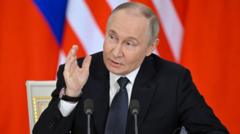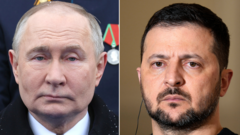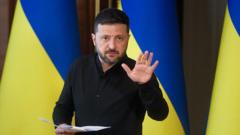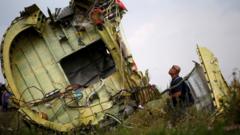In Poland, liberal mayor Rafal Trzaskowski is adjusting his campaign strategy for the presidential election, set for May 18, by prioritizing patriotic themes over progressive social issues. With growing populism in Europe, how this election unfolds could signal a shift or confirmation of political trends in the region.
Navigating Populism: Poland's Presidential Election as a Test for Political Centrism

Navigating Populism: Poland's Presidential Election as a Test for Political Centrism
As Poland prepares for its presidential election, liberal candidate Rafal Trzaskowski aims to counter right-wing populism by focusing on national unity and security.
In the lead-up to Poland's presidential election on May 18, the political landscape is charged with tension and anticipation, particularly regarding the prominence of populism across Europe. The liberal mayor of Warsaw, Rafal Trzaskowski, a key contender for the presidency, is strategically navigating these waters by embracing themes of national strength and unity while somewhat sidelining progressive agendas such as LGBTQ+ rights and abortion—issues that resonate strongly in urban, liberal areas but tend to alienate conservative rural voters.
During a recent campaign rally in Biala Podlaska, located in Poland's more conservative rural regions, Trzaskowski's focus was on bolstering military readiness in response to the ongoing war in Ukraine. His rhetoric struck a patriotic tone, aligning himself with the Polish flag and emphasizing the need for a "strong and powerful Poland." This approach contrasts with that of less popular figures associated with the progressive movement, who face backlash from right-wing factions displaying anti-LGBTQ+ sentiments.
The stakes are high for Trzaskowski not only personally but for the future political direction of Poland, facing a rise in right-wing populism. His victory may offer a respite against a broader trend exemplified by the expected election of a hard-right nationalist in Romania. Observers are watching closely to see if Trzaskowski's moderate and unifying messaging can transcend partisan divides, appealing to those disillusioned by the more aggressive populist rhetoric gaining traction in Eastern Europe.
As he campaigns through rural communities, the questions remain: Will centrism prevail in Poland's political scene, or will the repercussions of populism secure its grip? The answer could reshape the dialogue across the continent about democratic governance in a climate where anti-establishment sentiments are rising.




















